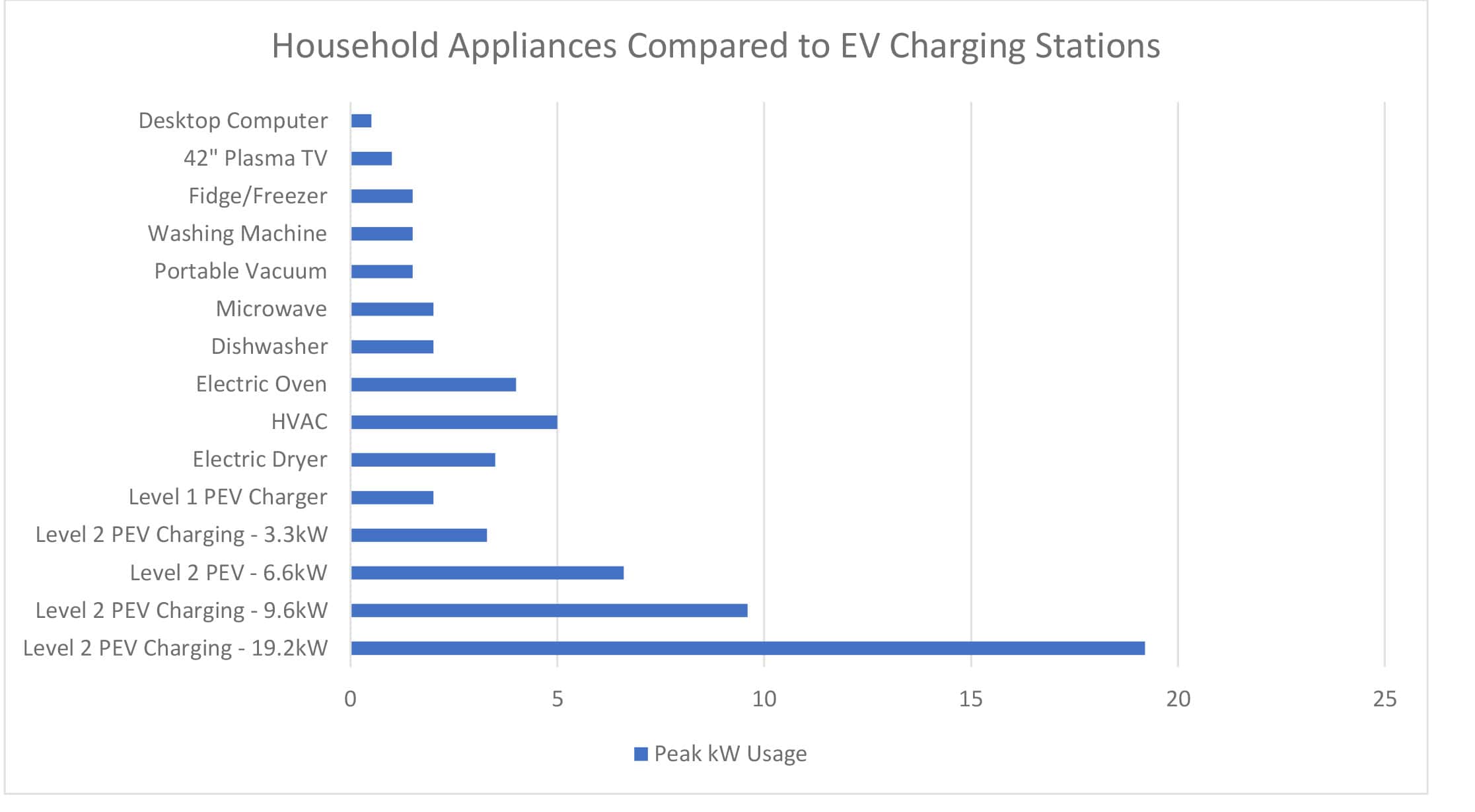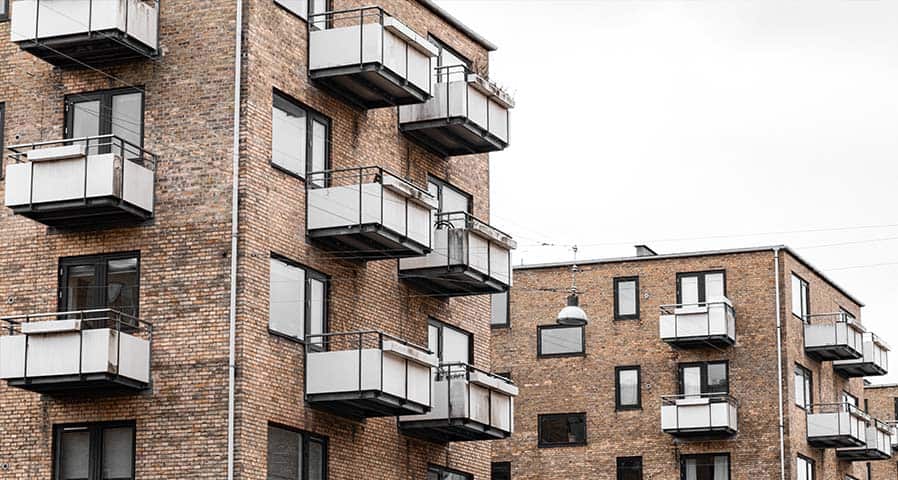This is Part 1 of our EV Charging for Multi-Family Dwellings blog series. To read the full series click here.
EV charging for multi-family dwellings is becoming more common. However, the charging infrastructure varies depending on vehicle use and type. Typically, the infrastructure is based on average daily miles driven and how long it takes for the vehicle to charge.
Types of EV Charging for MUD
To accommodate EV drivers, different types of charging stations and power levels are available for MUD owners.
AC Level 1 EVSE
Level 1 EV chargers use a standard three-prong 110/120-volt alternating current outlet. You do not need to install another connection. Most of these chargers use the portable cord set provided with the purchase of the electric vehicle. PHEVs (plug-in hybrid electric vehicles) typically have a smaller battery compared to BEVs (battery electric vehicles). The smaller battery allows PHEVs to charge faster than BEVs. Level 1 chargers can keep PHEVs fully charged without extended wait times. It also applies to BEVs that typically only cover around 50 miles a day.
AC Level 2 EVSE
Level 2 chargers require a 240VAC current. These chargers are typically used for BEVs and PHEVs with larger batteries. Most Level 2 units can charge a large EV battery in three hours or less. AC Level 2 chargers are more expensive to install. You will need to contact a licensed electrician. With the appropriate plug connector, Level 2 chargers can also plug into a 240VAC outlet. Think of the outlet used by larger appliances like a washer or dryer.
Most electric vehicles in the United States use a connector that meets the Society of Automotive Engineers (SAE). J-1772 standards for AC Level 1 and 2 charging stations.
Apogee Charging Solutions offers a full line of Level 2 AC Chargers, from 7.6 kW to 19.2 kW. No matter your multi-family dwellings need, we have a solution that can be customized to fit your unique challenges.
DC Fast Charging Stations (DC Level 2)
DC fast charging stations use a commercial grade 440VAC or 480VAC device that carries a direct current (DC) charge to the electric vehicle. A DC Level 3 unit can charge an EV battery up to 80% in less than 30 minutes.
Charging Levels and Power Ratings
The following table shows the various charging levels and the corresponding power ratings, types of EVs, and average charging times for residential applications. Vehicle charging rates or energy demand can vary from 3.3 kW to 19.2 kW per hour.

The following figure compares the energy demand of an electric vehicle with common household appliances.

Understanding the various types of EV chargers for multi-family dwellings will make it easier for MUD owners to select the right stations for their staff, tenants, and visitors.
To speak with an Apogee Charging Solutions, EV charging specialist for MUDs, call 484-816-2076, email [email protected], or schedule a call that fits your needs by clicking the button below.








0 Comments